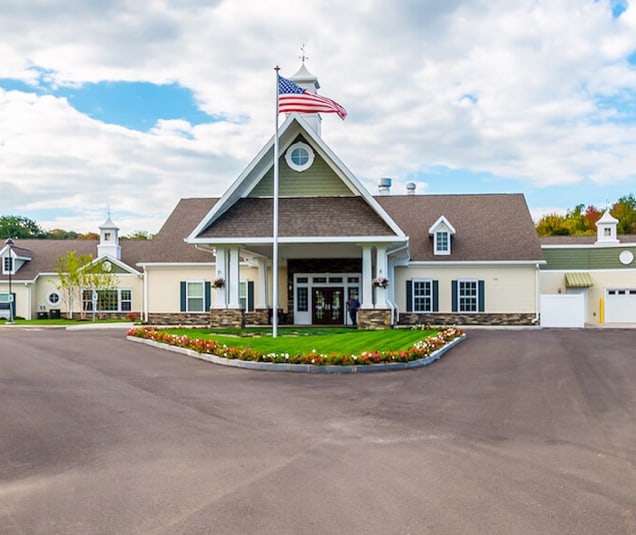Caring for a loved one with Alzheimer’s disease can be both a rewarding and challenging experience. As a caregiver or family member, you may sometimes feel uncertain or overwhelmed about how to provide the right care.
But you’re not alone. Many resources are available to guide you and help you manage your caregiving journey.
Key tips for managing Alzheimer’s care include educating yourself about the disease, maintaining a routine, seeking emotional support, and prioritizing your own well-being. You can positively impact your loved one’s life with the right support and knowledge.
Understanding Alzheimer’s Disease
Alzheimer’s disease is a progressive neurological condition that affects memory, thinking, and behavior. It’s the most common form of dementia and leads to cognitive decline that can disrupt daily life.
While age is the most significant risk factor for Alzheimer’s, the disease is not a normal part of aging. The disease affects individuals in different ways, and its progression varies from person to person.
As Alzheimer’s progresses, caregivers and family members often face increasing challenges in managing daily care and maintaining emotional well-being.
Establishing a routine, offering emotional support, and helping your loved one receive the proper medical care are essential components of caregiving.
Recognizing the Signs & Symptoms of Alzheimer’s
Early detection of Alzheimer’s is key to preparing for your loved one’s changing needs. Understanding the symptoms can help you anticipate challenges and develop a care plan. Common signs of Alzheimer’s include:
- Memory loss that disrupts daily life
- Forgetting important dates, repeating questions, or needing help with daily tasks
- Difficulty problem-solving & planning
- Struggling to manage finances, follow routines, or complete familiar tasks
- Confusion with time or place
- Losing track of time, dates, or the location of places they have been before
- Changes in mood & personality
- Exhibiting more irritability, withdrawal, or confusion than usual
- Communication difficulties
- Trouble finding the right words, following conversations, or interpreting visual cues
Because Alzheimer’s symptoms can differ between individuals, it’s essential to seek a medical diagnosis early. A professional evaluation can help develop a personalized care plan that meets the unique needs of your loved one.
Managing Caregiver Stress
Caring for someone with Alzheimer’s can be physically and emotionally demanding. Caregivers need to take care of themselves to provide quality care. Here are some ways to manage caregiver stress:
- Seek support by connecting with family members, friends, or local caregiver groups for encouragement & advice
- Take breaks by carving out time for personal activities & relaxation to avoid burnout
- Ask for help by involving other family members or considering respite care options to relieve some of your caregiving responsibilities
- Educate yourself, as understanding Alzheimer’s progression allows you to prepare for & respond to changing needs
- Prioritize mental health by engaging in activities like meditation, exercise, or therapy to maintain emotional well-being
- Explore financial assistance by looking into available government benefits or grants to help ease financial burdens
- Practice patience & empathy by understanding that your loved one’s behavior may change, & responding with compassion strengthens your bond
By taking proactive steps to manage stress, you can maintain your well-being and that of your loved one.

Effective Communication Strategies
As Alzheimer’s disease progresses, communication with your loved one may become more challenging. Adjusting your approach can improve interactions and help minimize frustration. Here are some communication tips to consider:
- Use simple language by speaking in short, clear sentences to make understanding easier
- Be patient & listen by giving your loved one ample time to respond & focus on their emotions as well as their words
- Use nonverbal cues, such as facial expressions, body language, & tone of voice, can express as much meaning as words
- Avoid arguing or correcting; rather than correcting mistakes or word mix-ups, focus on the emotions behind their words
- Engage in reminiscence therapy by talking about past experiences, which can provide comfort & encourage engagement
- Maintain a calm & positive tone because your demeanor can significantly impact how your loved one responds
- Seek professional guidance if communication difficulties increase, & consider reaching out to a specialist or joining support groups for additional guidance
Effective communication can make a meaningful difference in how your loved one experiences their day-to-day life, helping them feel heard and valued.
FAQ About Alzheimer’s Care
We understand you may have a lot of questions about Alzheimer’s disease and dementia care. Here are some quick answers to common questions to help you get started.
1. What are the early signs of Alzheimer’s?
Early signs may include memory loss, confusion with time or places, difficulty with problem-solving, and changes in mood or personality.
2. How can I manage caregiver stress?
Seek support from family and friends, take breaks for relaxation, and consider respite care options to reduce stress.
Respite care also offers a practical, temporary solution for specific situations, like post-procedure recovery or when your loved one needs extra care for a short time.
3. How can I communicate with someone who has Alzheimer’s?
Use simple language, maintain a calm tone, and focus on their emotions rather than correcting mistakes. Nonverbal cues like body language can also help.
4. When should I seek medical advice for Alzheimer’s symptoms?
It’s essential to seek medical advice as soon as you notice symptoms, such as memory loss or confusion, to get a diagnosis and develop an appropriate care plan.
5. Where can I find support for Alzheimer’s caregivers?
Join local support groups, connect with online caregiver communities, or reach out to healthcare professionals for additional resources.
Caring for Yourself While Caring for a Loved One
Caring for a loved one with Alzheimer’s can be deeply rewarding, but prioritizing your own well-being is crucial.
At Peregrine Senior Living at Onondaga Hill, we offer compassionate memory care in a secure, nurturing environment tailored to the needs of our residents and their caregivers. Schedule a tour today to see how we can support you and your loved one on this journey.












Dining at our community is about more than what’s on the plate—it’s about connection, community, and the joy of gathering together.
Our talented culinary team crafts meals that are both delicious and nutritious, offering flavors that comfort and inspire.
From themed dinners to chef demonstrations, each meal becomes an opportunity to savor the moment and celebrate life’s simple pleasures. 🍴
peregrineonondaga.com/ ... See MoreSee Less
0 CommentsComment on Facebook
We had a great time hosting the 1st annual Peregrine Chili Cookoff! Thank you to all who participated, judged and tried some delicious chili! We already can’t wait for next year!! ... See MoreSee Less
1 CommentsComment on Facebook
Come join us tomorrow for the 1st annual Chili Cook Off! ... See MoreSee Less
0 CommentsComment on Facebook
The concert featuring Jerry Cali was outstanding, with the residence and staff participating in energetic singing and dancing. ... See MoreSee Less
0 CommentsComment on Facebook
Today we celebrate the caregivers—those whose quiet strength and unwavering compassion bring comfort to so many.
We see the difference caregivers make every day: holding a hand, sharing a smile, or offering reassurance when it’s needed most. 💕
Your dedication reminds us that true care goes beyond tasks—it’s an act of love, patience, and humanity.
Thank you for all you do to make the world a more compassionate place.
peregrineonondaga.com/ ... See MoreSee Less
0 CommentsComment on Facebook
Today's visit from a group of high school students was particularly noteworthy, as they brought beautiful roses and handmade cards for every resident in our building, showcasing exceptional kindness. Witnessing the residents' reactions to these thoughtful gestures was deeply moving, bringing tears to my eyes on several occasions. This experience underscores the idea that life frequently provides more than we expect. The students' visit brought smiles to the residents' faces, highlighting the genuine joy and love they shared. We are indeed fortunate to have experienced such compassion. We extend our thanks to the Syracuse Academy of Science students and Amy A. Ay. ... See MoreSee Less
0 CommentsComment on Facebook
Happy Valentine’s Day! ❤️
Love takes many forms—between partners, friends, families, and even across generations.
Today we celebrate the love that fills our community: the care shared between residents and team members, the laughter that brightens our halls, and the sense of belonging that reminds us we’re never alone.
May your day be filled with connection, warmth, and heart.
peregrineonondaga.com/ ... See MoreSee Less
0 CommentsComment on Facebook